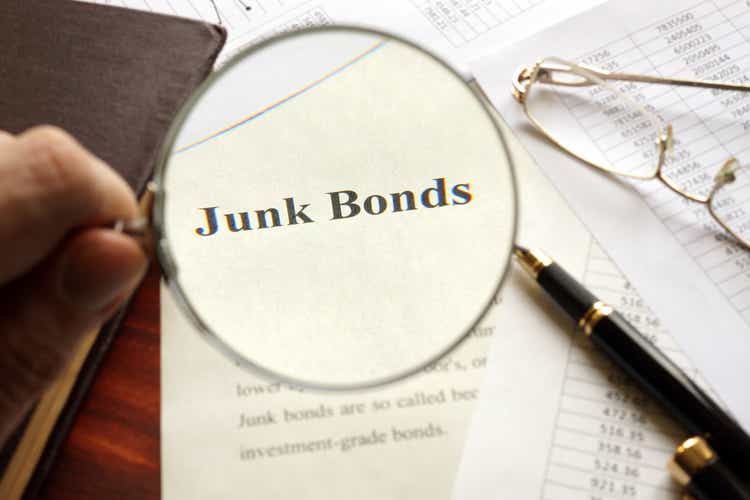[ad_1]
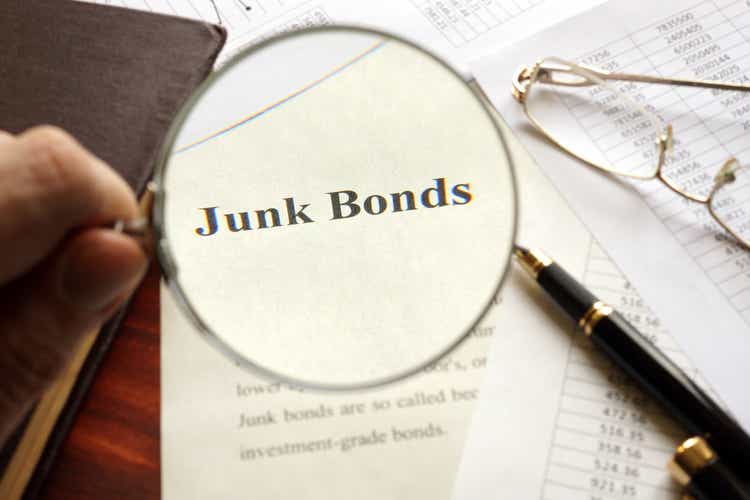
designer491
The Fidelity High Yield Factor ETF (NYSEARCA:FDHY) provides exposure to high yield bonds. Although it is relatively new and not as well-known as the HYG and JNK ETF, FDHY’s historical performance is superior with a 3.1% CAGR return since inception vs. 1.5% and 1.4%, respectively, for the two peer funds. Investors looking for high yield bond ETFs may want to take a closer look at FDHY.
Fund Overview
The Fidelity High Yield Factor ETF provides exposure to high yield non-investment-grade bonds. The fund has approximately $250 million in assets.
The FDHY ETF uses the ICE BofA BB-B US High Yield Constrained Index as a guide in selecting its investments. The index is a modified market capitalization-weighted index of US dollar denominated corporate debt rated BB or B by the S&P or Moody’s.
Portfolio Holdings
FDHY’s holdings consist of 282 positions, with the top 10 positions accounting for 19% of the fund (Figure 1). Interestingly, the fund has a small short position in something called “NET OTHER ASSETS”.
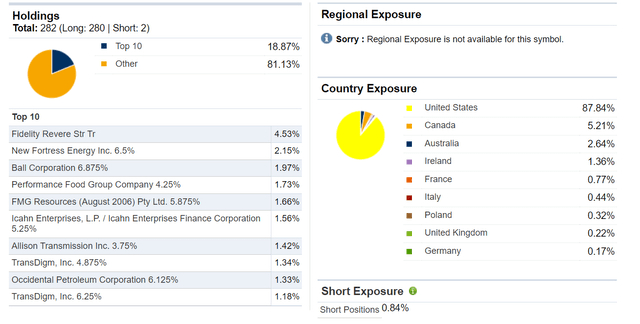
Figure 1 – FDHY holdings (fidelity.com)
The fund has a modified duration of 4.6 years and an average credit rating of BB- (Figure 2).
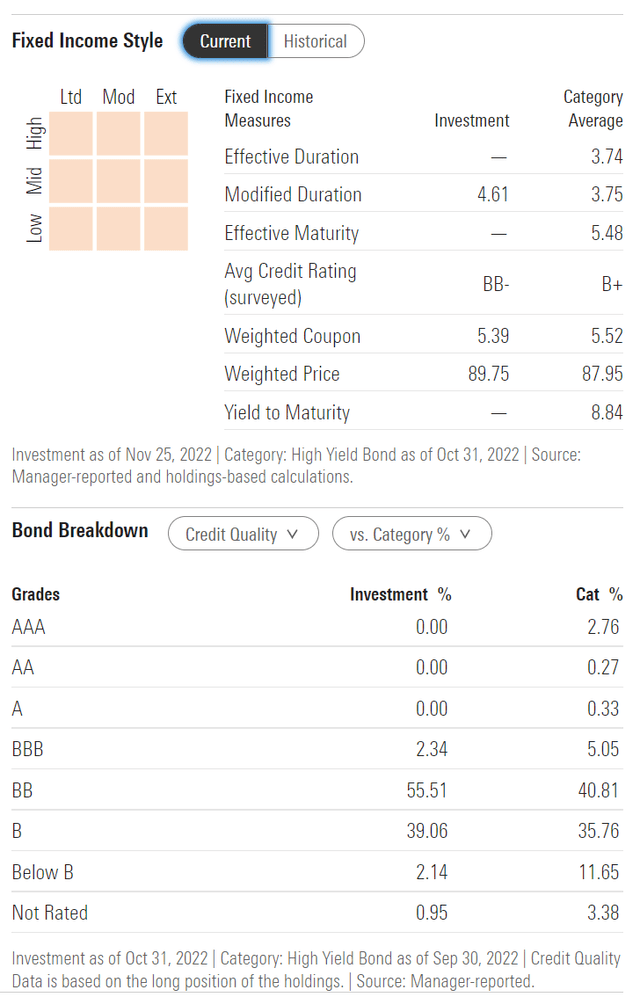
Figure 2 – FDHY average credit rating (morningstar.com)
Returns
The FDHY ETF has had a tough 2022, with 1Yr total returns of -12.4% to October 31, 2022, slightly underperforming the benchmark index’s -10.9% return (Figure 3). On a 3Yr basis, the fund has returned 1.1% per year vs. 0.1% for the index.
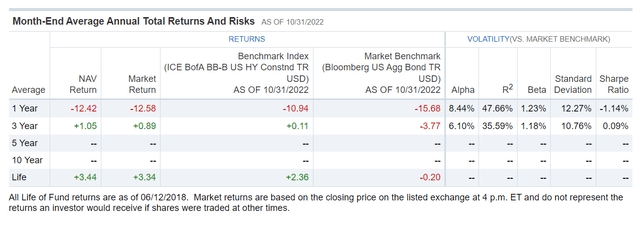
Figure 3 – FDHY returns (fidelity.com)
Distribution & Yield
FDHY pays a high distribution yield, with a trailing 12-month distribution of $2.44 / share or 5.3% (Figure 4). FDHY’s distribution is paid monthly and is variable.
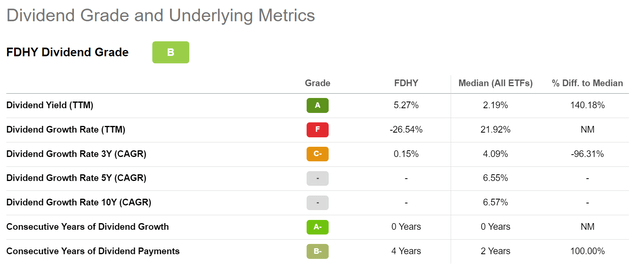
Figure 4 – FDHY distribution yield (Seeking Alpha)
Fees
FDHY’s fees are in line with other high yield corporate bond ETFs such as the iShares iBoxx $ High Yield Corporate Bond ETF (HYG) and the SPDR Bloomberg Barclays High Yield Bond ETF (JNK) (Figure 5).
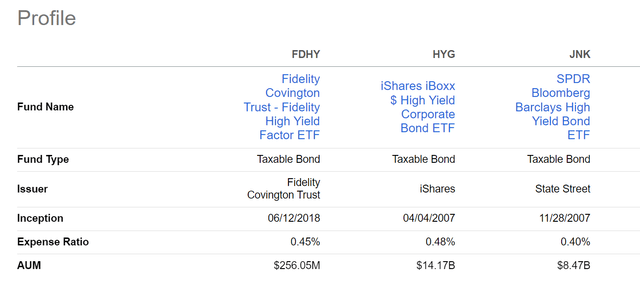
Figure 5 – FDHY fees vs. peers (Seeking Alpha)
Comparing FDHY To HYG and JNK
Comparing the FDHY ETF to the more well-known HYG and JNK ETF, we can see that FDHY’s distribution yield of 5.3% is on par with HYG’s 5.1% and JNK’s 5.6% (Figure 6).
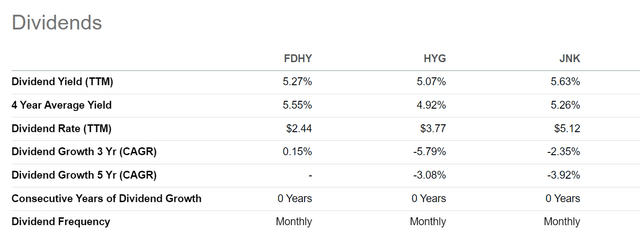
Figure 6 – FDHY has comparable distribution yield relative to peers (Seeking Alpha)
Comparing the three funds using Portfolio Visualizer, FDHY is slightly ahead of its peers (Figure 7) with a 3.1% CAGR return from July 2018 to October 2022 vs. 1.5% for HYG and 1.4% for JNK. Volatility and drawdowns are roughly the same.
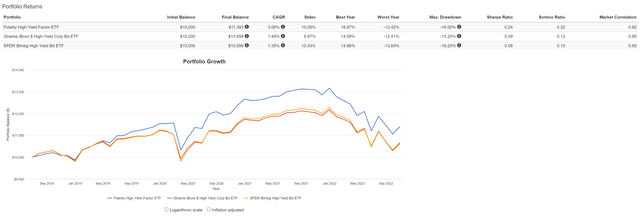
Figure 7 – FDHY vs. HYG and JNK (Author created with Portfolio Visualizer)
Recession Is A Risk
One word of caution regarding the FDHY ETF. If economists and market strategists are correct and a global recession is in store for 2023, then high yield credit funds may still have more downside.
As we can see from Figure 8 below, high yield credit spreads tend to widen dramatically during recessions. The ICE BofA US High Yield Index Option Adjusted Spread tends to peak above 8% vs. current levels of 4.6%. Higher credit spreads equal lower bond prices.
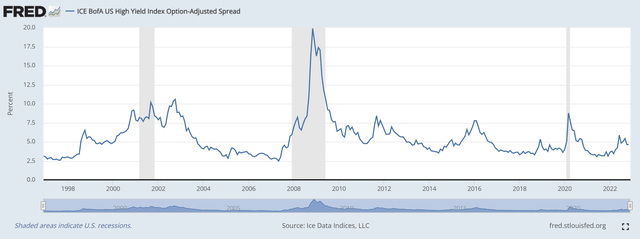
Figure 8 – HY credit spreads widen during recessions (St. Louis Fed)
Conclusion
The FDHY ETF provides exposure to high yield bonds rated BB and B. Although it is relatively new and not as well-known as the HYG and JNK ETF, FDHY’s historical performance is superior with a 3.1% CAGR return since inception vs. 1.5% and 1.4%, respectively, for the two peer funds. Investors looking for high yield bond ETFs may want to take a closer look at FDHY.
[ad_2]
Source links Google News

